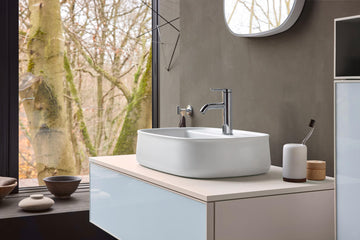Are you facing the frustrating issue of low water flow in your bathroom sink? This often occurs due to clogged aerators. If you are wondering how to remove aerator from moen bathroom faucet, you have come to the right place! In this guide, we will provide you with the essential steps and important tips to efficiently remove the aerator. Follow along to resolve your faucet issues quickly.
Moen faucets are popular for their quality and performance, but like any plumbing fixture, they require occasional maintenance. Knowing how to properly remove the aerator can save you time and costly repairs down the road. Lets dive into the process!

Understanding the Purpose of an Aerator
An aerator is a small device that screws onto the end of your faucet. Its purpose is to mix air with water, which helps in conserving water and providing a steady flow. However, over time, debris and mineral buildup can clog the aerator, causing reduced water flow. Recognizing when to clean or replace it is crucial for maintaining optimal water pressure.
Tools You Will Need
Before you begin the process, gather the following tools:
- Adjustable wrench
- Soft cloth
- Bucket
- Replacement aerator (optional)
Steps to Remove the Aerator
Now that you have gathered your tools, lets get started on removing the aerator:
Step 1: Turn Off the Water Supply
Ensure you turn off the water supply to the faucet. This step is essential to avoid any unwanted splashes. Locate the valves under your sink and turn them clockwise to shut off the water.
Step 2: Prepare Your Sink Area
Place a bucket under the sink to catch any residual water. Wipe down the area with a soft cloth to keep it clean during the process.
Step 3: Remove the Aerator
Using the adjustable wrench, grip the aerator carefully. Turn it counterclockwise to unscrew it from the faucet. If it is very tight, be cautious not to apply excessive force, as this may damage the faucet.
Step 4: Inspect and Clean the Aerator
Once removed, inspect the aerator for any signs of buildup. Soak it in a mixture of vinegar and water to dissolve mineral deposits. If the aerator is damaged, consider replacing it with a new one.
Reinstalling the Aerator
After cleaning (or replacing) the aerator, follow these steps to reinstall it:
Step 1: Rinse and Reattach
Rinse the aerator in clean water before reattaching it. Align the threads correctly and screw it back onto the faucet. Turn it clockwise until it is snug, but avoid overtightening.
Step 2: Turn the Water Supply Back On
Open the water supply valves under your sink. Turn on the faucet to test the water flow. If everything is working correctly, you should experience improved water pressure.
Other Maintenance Tips for Your Moen Bathroom Faucet
To keep your faucet in optimal condition, consider the following maintenance tips:
- Regularly check and clean the aerator at least once every 6 months.
- Avoid using harsh chemicals that can damage the faucet finish.
- Inspect the faucet for leaks and address them promptly.
When to Call a Professional
If you try these methods and still face issues with your faucet, it may be time to call in a professional. Plumbing can sometimes present hidden challenges that require expert solutions.

Frequently Asked Questions
1. How often should I clean my faucet aerator?
It is ideal to clean the aerator every 6 months to prevent buildup and ensure optimal water flow.
2. Can I use any tool to remove the aerator?
It is best to use an adjustable wrench or a specific aerator removal tool to avoid damaging the fixture.
3. What can I do if the aerator is stuck?
If the aerator is stuck, soak it in vinegar to loosen any mineral deposits or use a cloth for better grip while unscrewing.
For more detailed plumbing tips, check out the article on removing a Delta bathroom faucet or learn about cleaning your faucet head to maintain your bathroom's fixtures.
For energy-efficient options, visit Energy.gov for best practices in water management.
As an Amazon Associate, I earn from qualifying purchases.






